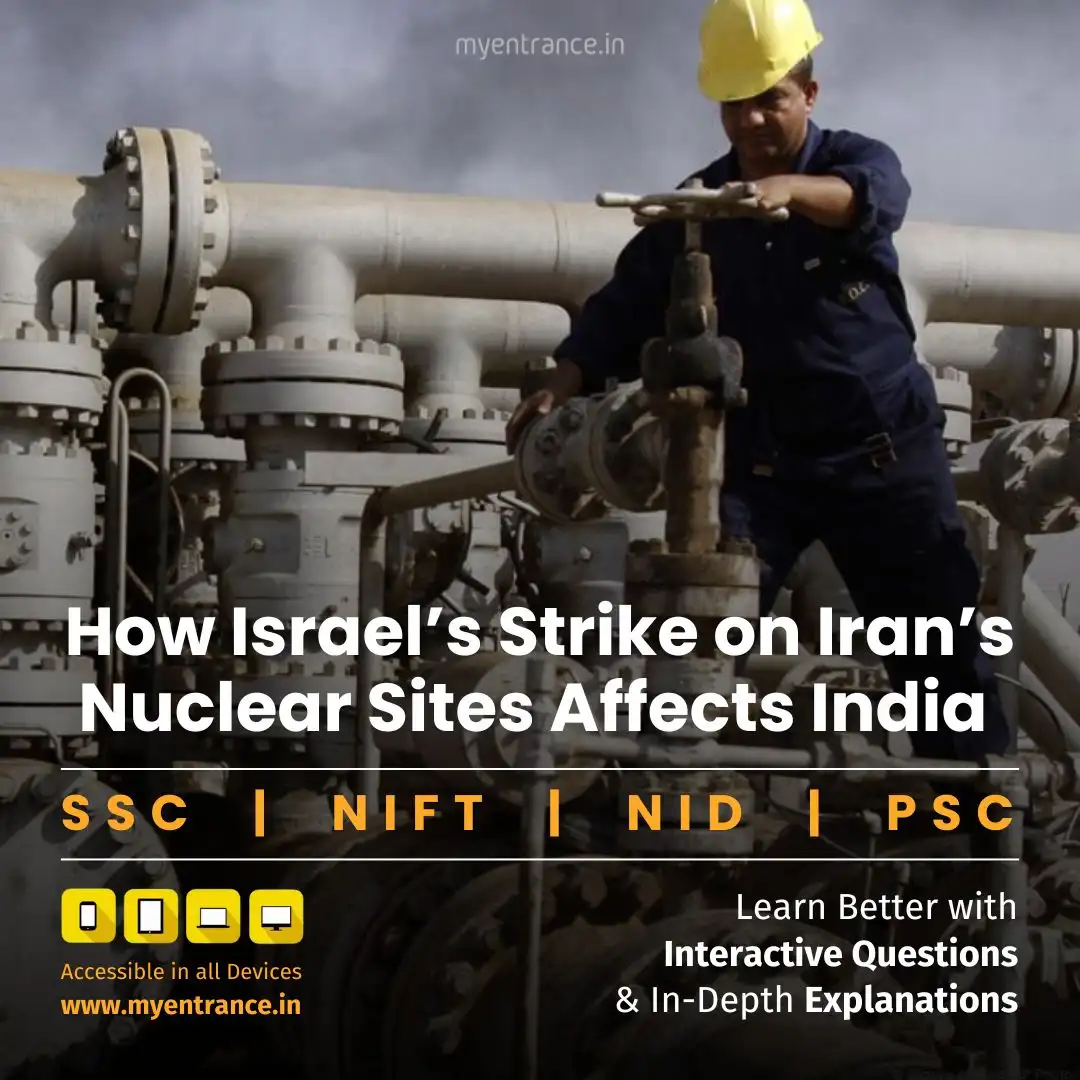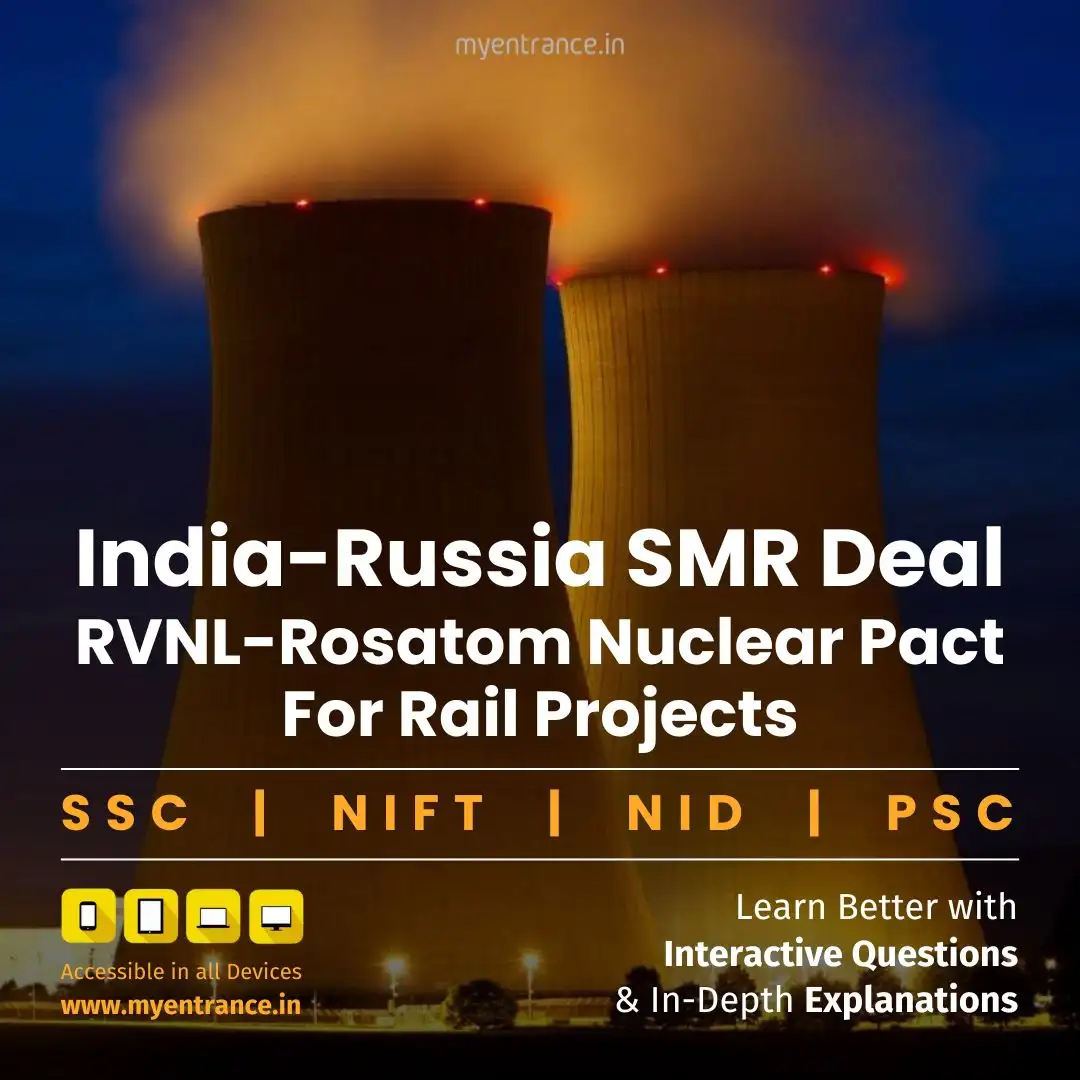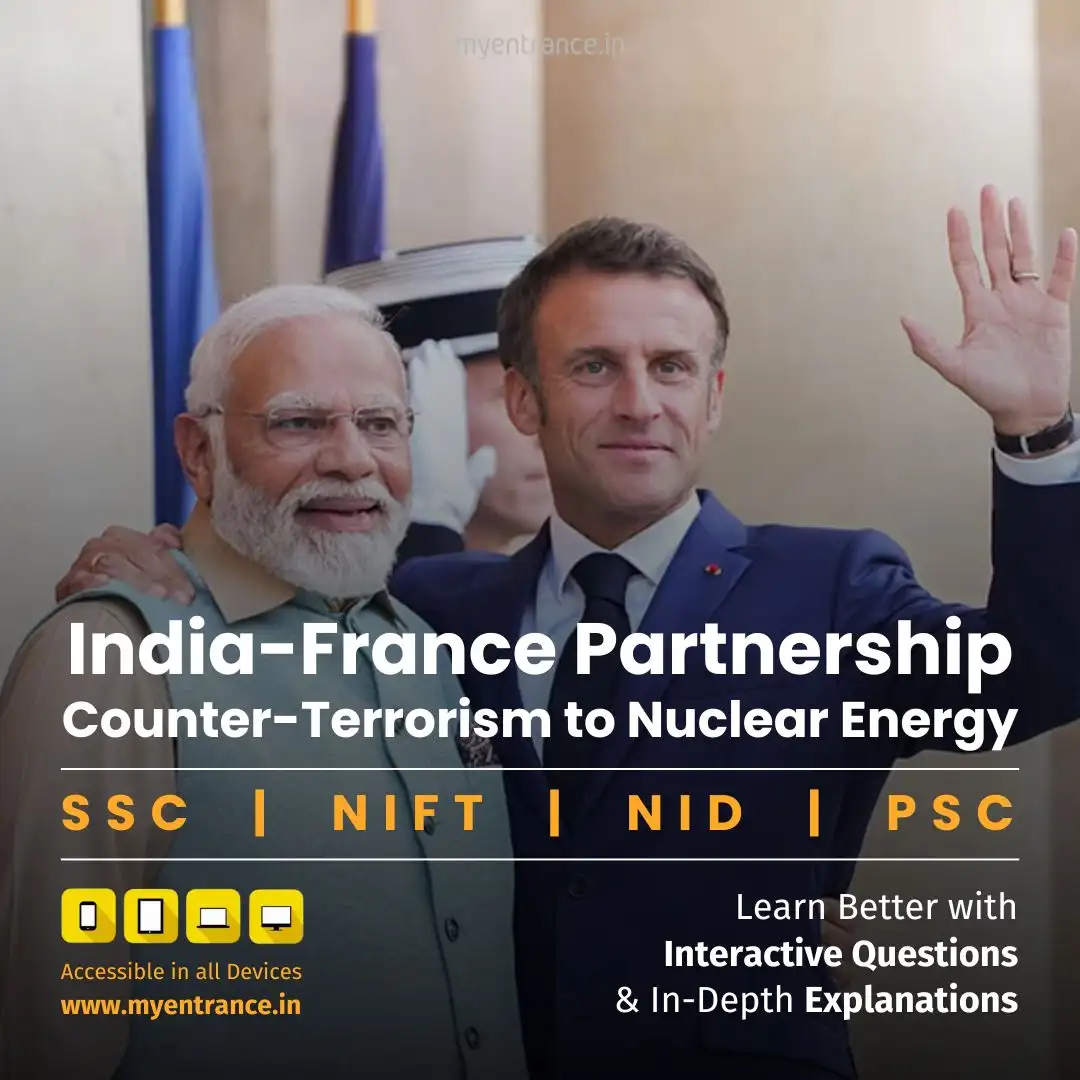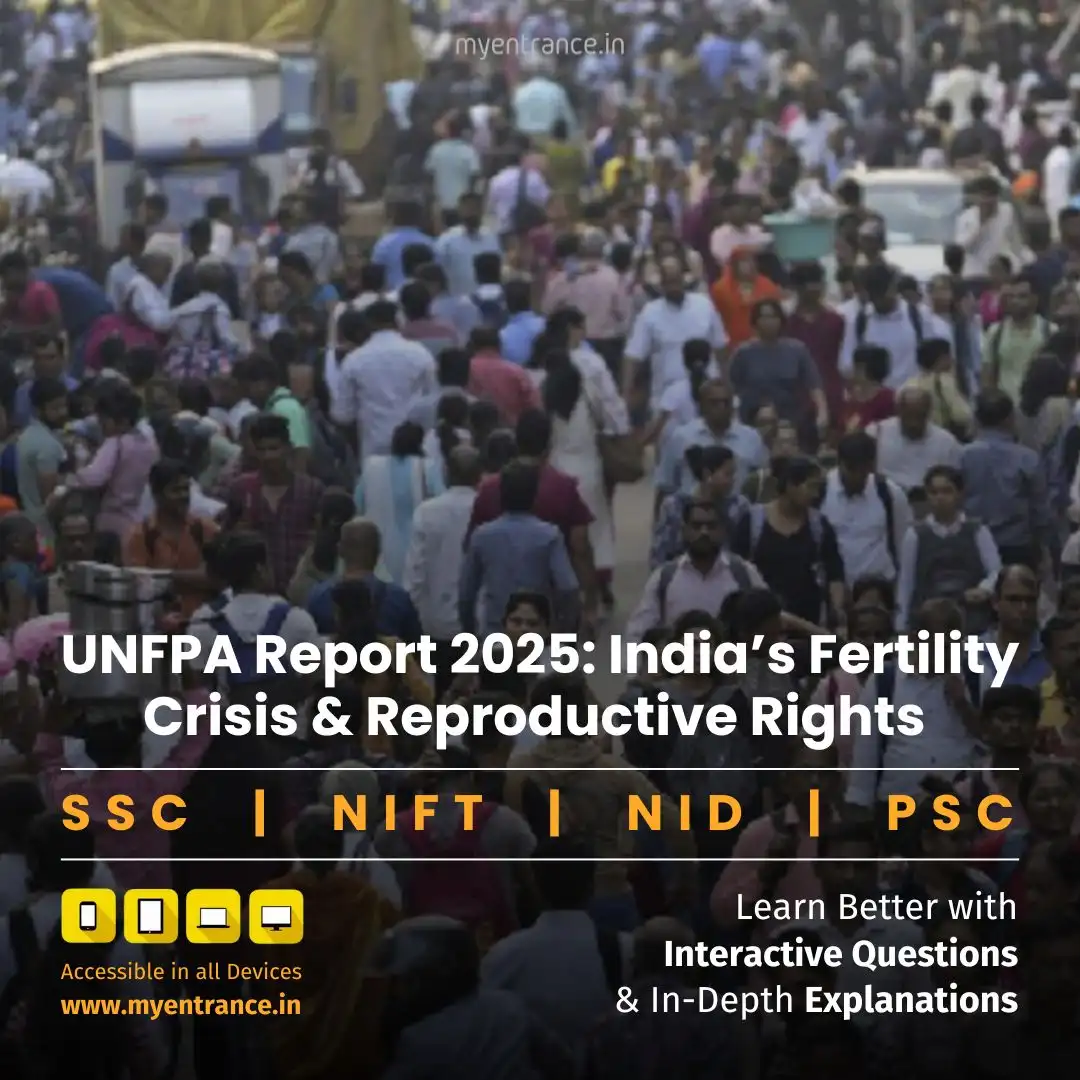Select Language
How Israel’s Strike on Iran’s Nuclear Sites Affects India
Israel’s targeted attacks on Iran’s nuclear infrastructure mark a dangerous escalation in their decades-long shadow war. This conflict reshapes Middle Eastern stability, with critical implications for India’s energy security and diplomatic ties.
Key Points for UPSC GS II Analysis
1. Conflict Origins & Operation Rising Lion
Historical Rivalry: Iran-Israel hostilities began after Iran’s 1979 Islamic Revolution, with Iran funding anti-Israel groups (Hezbollah, Hamas) and Israel targeting Iranian assets.
Operation Rising Lion: Israel’s multi-pronged assault (April 2024) hit 100+ targets, including the Natanz uranium enrichment site and missile bases. Unlike past strikes, Israel vows continuous operations to dismantle Iran’s nuclear program.
2. Iran’s Nuclear Program & Global Response
Natanz Facility: Iran’s primary uranium enrichment site, buried deep underground in Isfahan. Enrichment converts uranium-238 to weapons-grade uranium-235.
IAEA Resolution: The IAEA voted 19-3 to declare Iran in violation of the Nuclear Nonproliferation Treaty (NPT), which Iran signed but allegedly breached by pursuing covert weapons tech.
U.S. Stance: Caught between Israeli pressure and avoiding war, the U.S. distanced itself from strikes but warned Iran against retaliating on U.S. assets.
3. Geopolitical Fallout & India’s Concerns
Regional Instability: Escalation risks disrupting Gulf energy supplies and shipping lanes – vital for India’s oil imports (over 60% from the region).
Diplomatic Isolation: Iran’s lack of Arab support at the IAEA vote highlights its regional alienation, complicating India’s Chabahar port projects.
Radiation Risks: Attacks on nuclear sites could cause radiation leaks, endangering Indian expatriates in the Gulf (9 million+) and regional ecology.
Key Takeaways from C. Raja Mohan’s Analysis
Israel’s campaign aims to permanently degrade Iran’s nuclear capabilities, ignoring global war warnings.
Iran faces a strategic dilemma: retaliate against U.S./Arab states (risking all-out war) or pursue calibrated diplomacy.
Despite Iran’s regional proxies, its political isolation weakens its bargaining power.
The IAEA resolution sets the stage for potential UN sanctions, raising nuclear stakes.
Sample Q&A for UPSC Mains
Q: How does the Iran-Israel conflict impact India’s energy security?
A: Disruptions in the Strait of Hormuz could spike oil prices and threaten 60% of India’s crude imports, straining the economy.
Q: Discuss Iran’s obligations under the Nuclear Nonproliferation Treaty (NPT).
A: As an NPT signatory, Iran must allow IAEA inspections and refrain from developing nuclear weapons. The IAEA’s 2024 resolution accuses Tehran of violating these terms.
Q: Why is the Natanz facility critical to Iran’s nuclear ambitions?
A: Natanz houses centrifuges that enrich uranium to weapons-grade levels (~90% U-235), enabling potential nuclear weapon production.
Q: What role does the IAEA play in monitoring Iran’s nuclear activities?
A: The IAEA conducts inspections under safeguards agreements, verifies compliance with the NPT, and reports violations to the UN Security Council.
Q: How might India balance its ties with Israel and Iran amid this conflict?
A: India must safeguard energy imports from Iran, strategic ties with Israel (defense/tech), and diaspora welfare while advocating for de-escalation via multilateral forums.
Most Predicted Questions
Comprehensive study materials, Expert-guided tips & tricks, Mock tests and instant results.
Start your SSC, NIFT, NID, FDDI, PSC journey today with MyEntrance, your ultimate online coaching platform.







